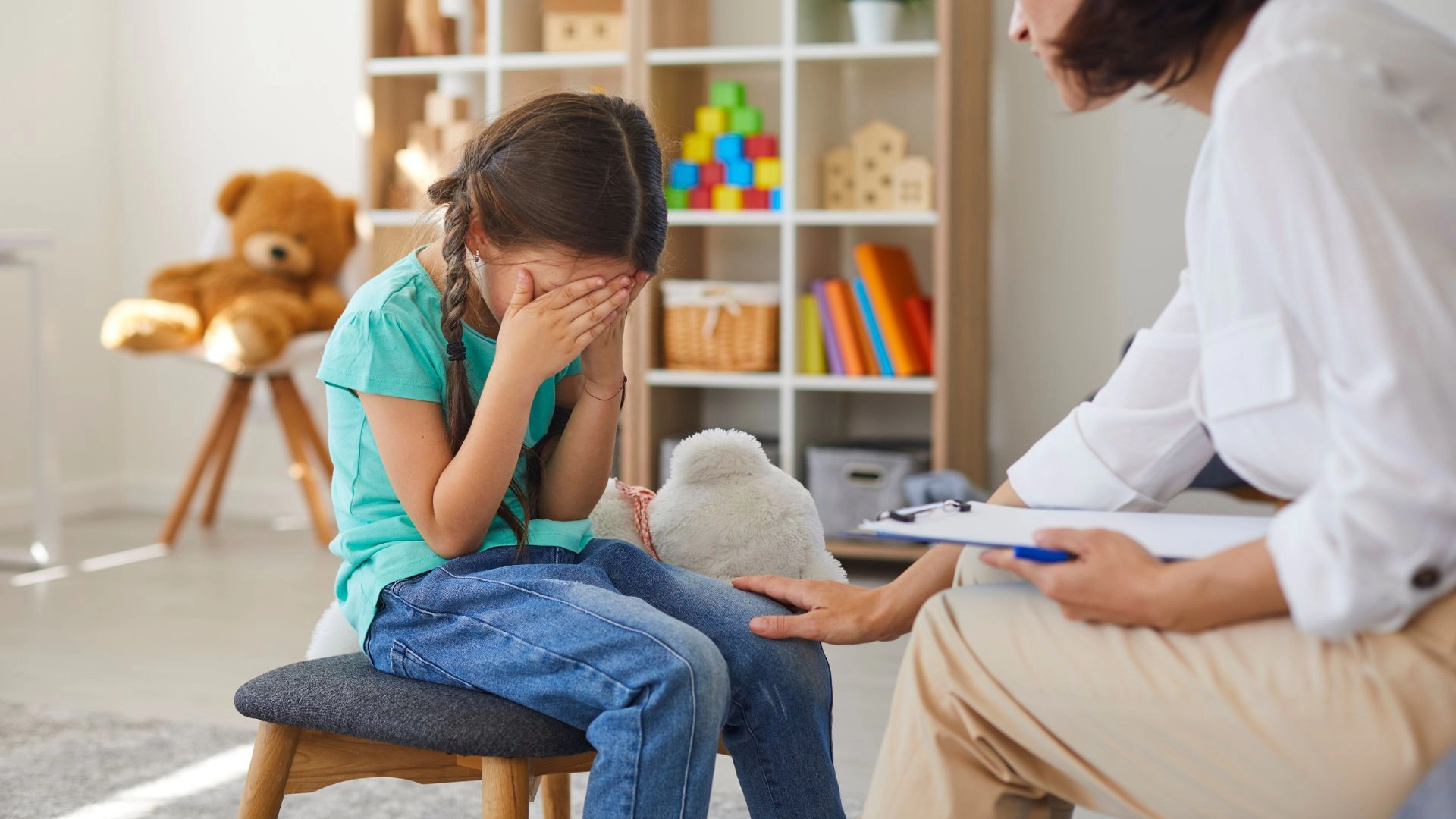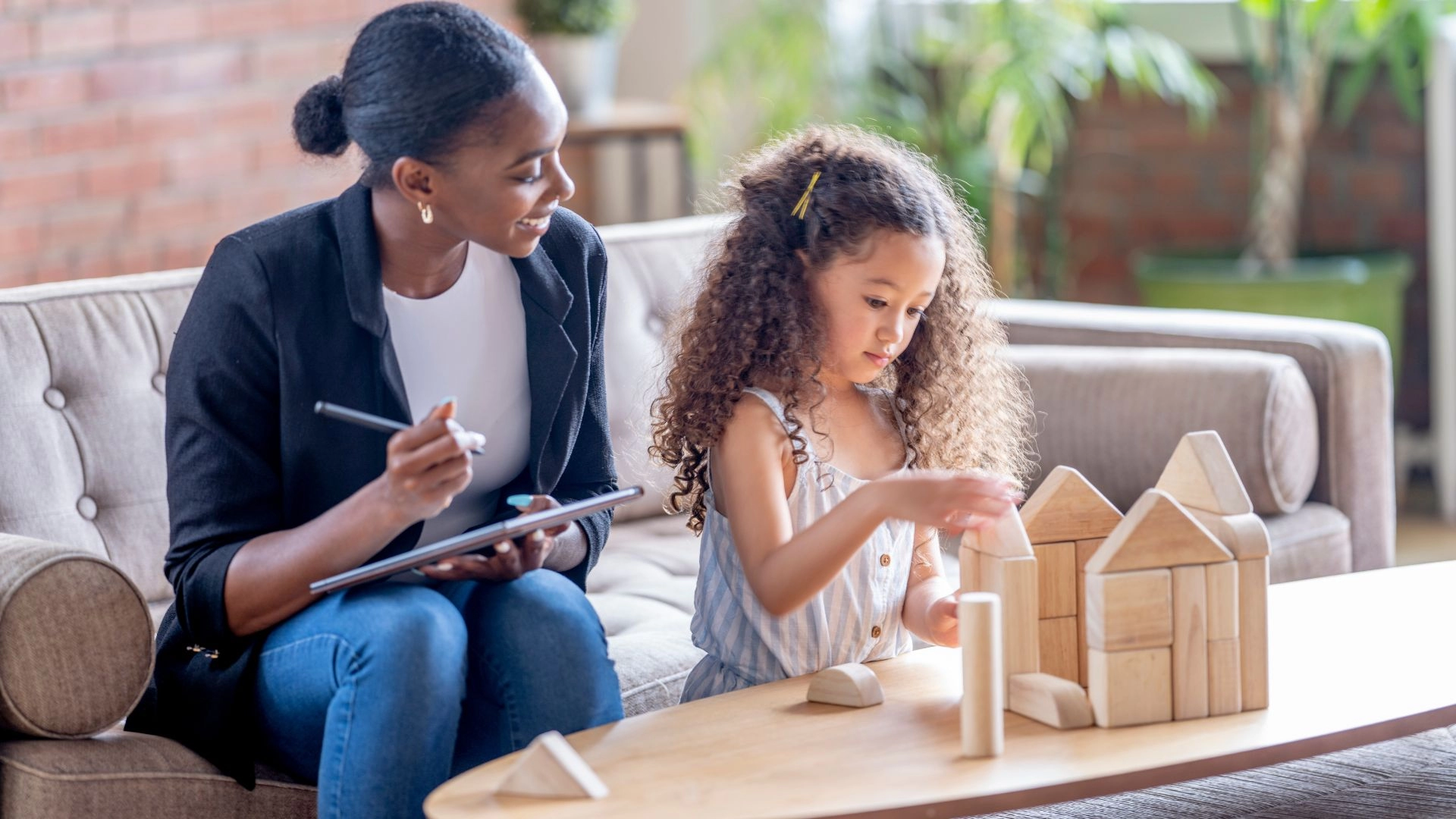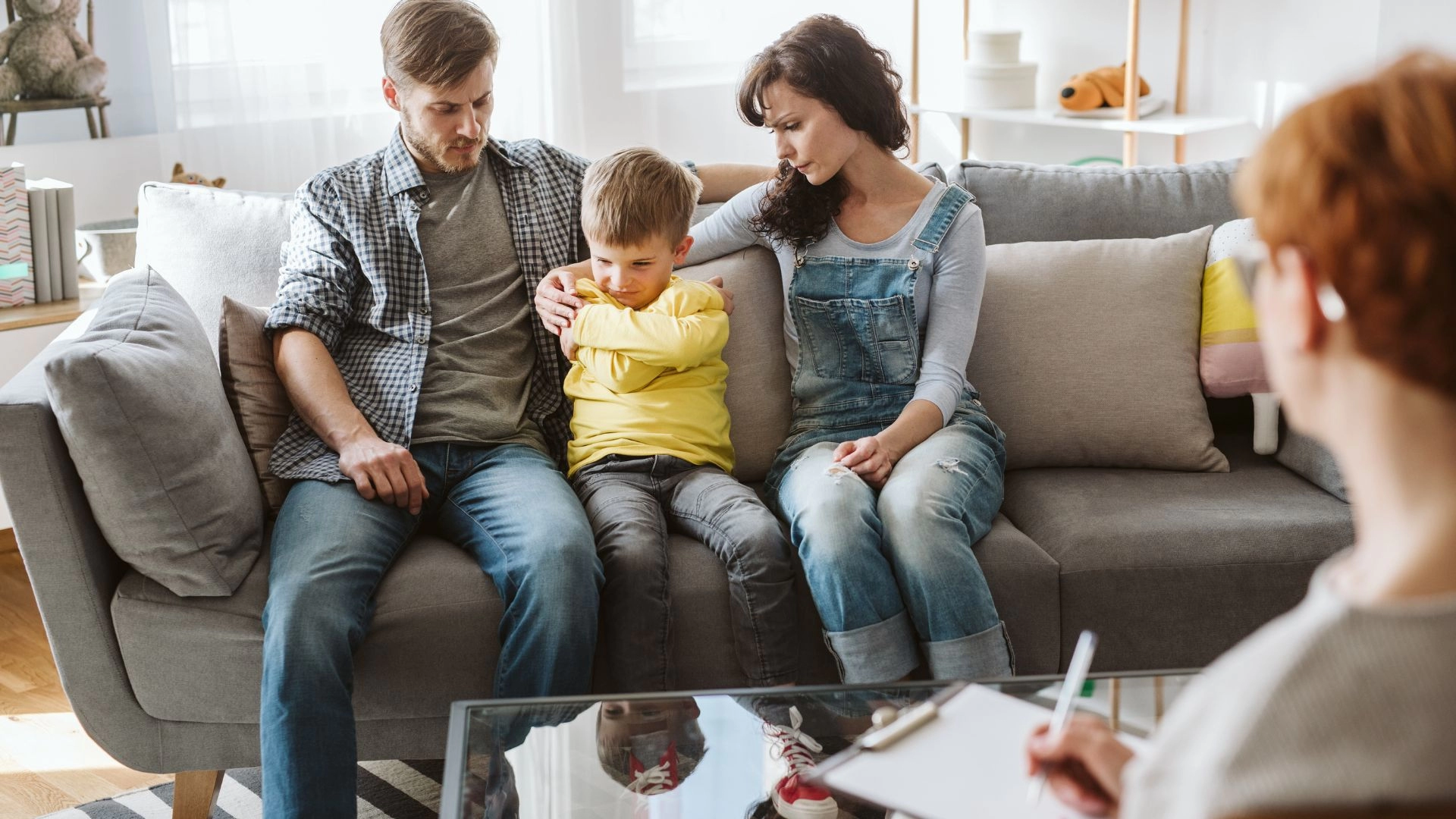We recognize that grief can be especially tough for children, and Child Counseling Therapy serves as an essential support system. This therapy creates a safe space for kids to express their feelings and navigate the complex emotions of loss. Using techniques like play therapy and art therapy, we help them articulate their grief and foster resilience. Family involvement is significant, so we often engage parents to enhance communication and understanding. Together, we can promote emotional healing and provide coping strategies. If you seek further insights into how this therapy can help, we encourage you to explore additional information.

About Child Counselling Therapy
When we’re faced with the challenge of helping a child navigate grief, understanding child counselling therapy can be an essential first step in providing the support they need. Child therapy focuses on creating a safe space where children can express their feelings and experiences. Grief counselling specifically addresses the unique emotions children face when dealing with loss, emphasizing the importance of emotional support in families.
By engaging in parent-child therapy, we can strengthen family emotional well-being, ensuring that everyone feels heard and supported. Therapeutic interventions like play therapy or art therapy allow children to process their grief in a way that feels comfortable for them. These approaches are often grounded in trauma-informed therapy principles, which recognize the impact of loss on a child’s mental health.
Additionally, family support programs can provide resources and guidance for parents, promoting mental health awareness and helping families navigate their collective grief. Behavioral therapy techniques can also be beneficial in addressing any behavioral changes that arise during this challenging time. Ultimately, by prioritizing child counselling therapy, we can foster resilience and healing within our families, helping our children to cope effectively with their grief.
Understanding Grief in Children
Understanding how children experience grief is essential to providing the right support during such a difficult time. As child and adolescent counsellors, we recognize that grief in children can manifest in various ways, often differing from adult expressions. Children may not have the same emotional vocabulary or understanding, which can make their feelings seem unpredictable. That’s where emotional resilience comes into play; we can help nurture it through therapeutic counselling and emotional therapy.
When working with families, we must consider family dynamics and how they influence a child’s grieving process. Therapy for family issues can facilitate better communication and understanding among family members, allowing children to express their feelings more openly. Incorporating communication skills therapy can empower parents with the tools they need for effective dialogue.
Additionally, embracing holistic therapy approaches allows us to address the emotional, psychological, and social aspects of grief. Parental guidance is essential, as parents often seek support on how to navigate their child’s emotions. By fostering an empathetic environment, we can help children process their grief in a healthy manner, ultimately aiding their healing journey. Together, we can support them through this challenging experience.

The Role of Child Therapy in Grief Recovery
Child therapy plays an essential role in guiding young ones through the complex journey of grief, helping them articulate their emotions and find a pathway to healing. As emotional resilience specialists, we recognize that grief can manifest as anxiety in children. By using child counselling therapy, we can help them process their feelings in a safe and nurturing environment.
Our approach involves various child therapy techniques tailored to each child’s unique needs. Mental health professionals often incorporate psychotherapy for anxiety to address underlying fears related to loss. Additionally, we recommend family therapy sessions to foster open communication and support among family members. This not only aids the grieving child but also helps parents understand how to provide effective support for their children.
Play Therapy as a Tool for Grieving Children
Incorporating play therapy into our grief counseling approach allows children to express their emotions in a natural and engaging way, helping them navigate the complexities of loss while feeling understood and supported. For grieving children, play therapy serves as an essential tool, enabling them to explore their feelings and develop healthy coping mechanisms.
Through various play activities, we can observe how children process their grief, which often reveals underlying anxiety symptoms and emotional regulation challenges. This method fosters an environment where they can safely express their thoughts and feelings, promoting better family mental health and improving relationship dynamics.
As we guide these children through trauma therapy, we encourage them to engage in imaginative play, which often opens doors to significant conversations about their loss. This approach not only aids in stress management but also helps children articulate their grief in ways that words sometimes can’t capture. By utilizing play therapy, we’re providing grieving children with the tools they need to cope effectively, ultimately leading them toward healing and resilience. Together, we can create a supportive space where their emotions are validated and understood.

Cognitive-Behavioral Therapy for Children Experiencing Grief
When children experience grief, cognitive-behavioral therapy (CBT) can provide them with valuable strategies to manage their emotions and navigate the challenges that come with loss. This form of child counselling therapy focuses on helping kids identify and reframe negative thoughts associated with their grief. By utilizing anxiety management techniques, we can support them in recognizing their feelings and understanding that it’s okay to feel sorrow.
CBT also aids in enhancing emotional well-being by teaching grounding techniques that allow children to stay present during overwhelming moments. These strategies can be particularly helpful for managing anxiety symptoms, as they empower children to gain control over their thoughts and emotions.
Incorporating family therapy techniques can further enrich the process, fostering open communication and connection among family members. This holistic approach not only addresses the individual’s mental health but also strengthens family bonds during a difficult time.
Ultimately, by utilizing cognitive-behavioral therapy, we equip children with essential tools for therapy for stress and grief, enabling them to cope more effectively and begin their journey toward healing. Together, we can help them find their way through this challenging experience.
Art Therapy for Kids Dealing with Loss
Art therapy offers a creative outlet for kids grappling with loss, allowing them to express their feelings in a safe and supportive environment. Through art, we can help children navigate their emotions, facilitating emotional expression that might be difficult to articulate verbally. This form of creative therapy for children serves as an essential component of grief counseling, helping kids process their grief while also providing coping strategies for loss.
In family therapy settings, we often notice the anxiety in families surrounding a child’s grief. Art therapy for kids not only aids individual healing but also fosters connection among family members, as they can share and discuss the artwork together. These therapeutic techniques for grief encourage open dialogue, promoting child grief support in a collaborative manner.
Trauma-Informed Care in Child Grief Therapy
Trauma-informed care is crucial for effectively supporting children who are managing their grief, as it recognizes the profound impact that loss can have on their emotional and psychological well-being. In our practice of child counselling therapy, we prioritize a safe and supportive environment where children can express their feelings without fear of judgment. This approach helps us address the unique ways grief manifests in young ones, often leading to anxiety in adults and children alike.
By integrating trauma-informed care principles, we can better understand the complex layers of grief. We focus on psychological therapy practices that include anxiety coping strategies tailored for children, promoting stress reduction and emotional resilience. Family-focused therapy is another essential aspect of our approach, as it fosters family mental health care and strengthens the support systems children need during these challenging times.
Ultimately, our goal is to nurture adolescent mental health by recognizing the interplay between trauma and grief, ensuring that each child feels seen and heard. Together, we can navigate this difficult journey, empowering them to heal and thrive despite their loss.
The Importance of Emotional Support for Children
Emotional support is vital for children maneuvering through grief, as it provides them with a safe space to express their feelings and fosters a sense of connection during a time of profound loss. We understand that grief can be isolating for children, and that’s where family counselling therapy plays an important role. By engaging in grief therapy and child counselling, we can help children process their emotions and feel understood.
Licensed counsellors are equipped to offer emotional support tailored to each child’s unique needs. Holistic family therapy allows us to address not just the child’s grief but also the family dynamics that may be affected. Through parental counselling, we can empower parents to provide the necessary support at home, creating a nurturing environment for healing.
In cases of family conflict management, crisis intervention therapy can help families navigate their challenges together. Ultimately, our goal is family healing, ensuring that children don’t have to face their grief alone. By fostering emotional support, we create a foundation that encourages open communication and resilience, helping children develop coping skills that will serve them throughout their lives.
Parent-Child Therapy for Grief
Parent-child therapy for grief offers a compassionate space where families can navigate their shared loss together, fostering understanding and connection during this challenging time. By engaging in family counselling therapy, we can address the unique ways each family member experiences grief. This approach not only supports children’s grief but also strengthens the parent-child bond, allowing us to explore our emotions openly.
In parent-child therapy, we work with a relationship counsellor who specializes in grief therapy, providing tailored strategies that fit our family’s needs. Through integrative family therapy, we learn effective parenting strategies that promote family wellness, enabling us to cope with loss collectively. The therapist guides us in recognizing and validating each other’s feelings, creating a safe environment for expression.
Additionally, family guidance services can enhance our understanding of how grief affects different family members, ensuring that no one feels alone in their journey. By participating in this therapeutic process, we can cultivate resilience, foster healing, and develop a deeper connection, allowing us to honor our loved one’s memory while strengthening our family ties. Together, we can navigate this difficult path with compassion and support.

Integrating School Counseling into Grief Support
Integrating school counseling into grief support can provide essential resources for students, helping them navigate their feelings and fostering a sense of community during such a challenging time. When we incorporate school counseling, we create a safe space for children to express their grief and anxiety. Our school counselors can offer tailored child counselling, ensuring students feel heard and supported.
In addition, they can facilitate parenting coaching sessions, empowering families to build stronger relationships while dealing with grief. This approach can help in conflict resolution in families, addressing any tensions that may arise during difficult times. School counseling also provides anxiety therapy specifically designed for anxiety disorders in teens, giving them tools to cope with their emotions.
Family Therapy as a Component of Grief Recovery
As we explore grief support further, it’s important to recognize how family therapy can play an essential role in helping families navigate their collective grief and strengthen their bonds during this difficult journey. Family counselling therapy provides a safe space for us to express our emotions, share our stories, and find comfort in one another’s experiences of loss and bereavement.
Engaging in family systems therapy allows us to understand the unique dynamics at play, ensuring that every family member, including children, receives the emotional support they need. A marriage and family therapist can guide us through the family therapy process, helping us identify and address unresolved feelings while fostering open communication.
Sibling therapy can also be beneficial, as it encourages siblings to connect and support each other during this challenging time. By participating in family health counselling, we learn coping strategies and ways to support one another effectively, promoting healing and resilience. Ultimately, these therapeutic approaches contribute considerably to our grief recovery, allowing us to honor our loved ones while rebuilding our family’s emotional strength together.
Early Intervention and Its Impact on Grief Management
Early intervention can considerably enhance our ability to manage grief, allowing us to address emotional pain and find support before it becomes overwhelming. By seeking help early on, we can engage in family counselling therapy that helps us understand our feelings collectively. This collaborative approach builds emotional resilience, enabling us to face our grief together.
Participating in anxiety support groups or attending anxiety therapy sessions can also be instrumental. These settings provide a safe space for us to share our experiences, receive guidance, and learn calming techniques that promote stress relief. Child therapists, trained in trauma-informed care, are especially valuable in this process, as they can tailor interventions to meet our unique needs.
When we prioritize early intervention, we not only mitigate the intensity of our grief but also establish a strong foundation for recovery. This proactive approach empowers us to navigate our emotions and fosters a supportive environment where healing can take place. In doing so, we create space for hope and growth, transforming our grief into a shared journey toward understanding and acceptance. Together, we can pave the way for a healthier future in the face of loss.
Grief Counseling Techniques for Children
Effective grief counseling techniques for children often involve creative expression and play, allowing them to process their emotions in a safe and supportive environment. We can utilize art, storytelling, and games as crucial tools in children’s therapy, helping them articulate feelings they might not yet understand. Family-centered counselling is especially beneficial, as it encourages open communication among family members, fostering a sense of connection during challenging times.
Incorporating anxiety relief techniques, such as mindfulness practices and breathing exercises, can also aid in emotional regulation. When children feel overwhelmed, these strategies help them manage anxiety, making it easier to engage in the healing process. A psychotherapist trained in trauma-informed care will create a nurturing space where children feel safe to explore their grief without judgment.
Additionally, involving parents in the process can enhance the effectiveness of grief counseling techniques for children. Through family counselling therapy, we can help parents navigate their own grief while supporting their child’s emotional journey. This holistic approach not only addresses individual needs but also strengthens family bonds, ultimately fostering resilience and healing for everyone involved.
Coping Mechanisms and Support Strategies for Families
Supporting a child through grief requires not only effective techniques in therapy but also a strong network of coping mechanisms and support strategies for the entire family. We can begin by engaging in family counselling therapy, which fosters open communication and shared experiences. This can help us all understand and navigate our emotions together.
Incorporating grief support strategies like shared rituals, memory-making activities, and storytelling allows us to honor our loved one while also bonding as a family. We should consider anxiety treatment options, especially for those facing anxiety disorders, through anxiety counselling or family behavioural therapy.
Utilizing relaxation techniques, such as deep breathing exercises, can also help us regulate our nervous systems during difficult moments. Practicing these coping mechanisms together not only aids in individual healing but strengthens our collective resilience.
Reach Out to Our Child Therapists for Anxiety Support
When anxiety feels overwhelming for a child, reaching out to our child therapists for support can make a significant difference in their healing journey. We recognize that anxiety can arise from various triggers, especially in times of grief. Our child therapists are trained to provide emotional support tailored to each child’s unique needs.
At our Child Counselling Therapy Center, we provide a supportive environment where both parents and children can explore their emotions together. Our comprehensive range of anxiety treatment options includes relaxation exercises and cognitive-behavioral therapy, aimed at managing fears effectively. Our experienced therapists collaborate with families to pinpoint anxiety triggers and develop tailored coping strategies to empower children.
We emphasize the importance of open communication and encourage families to seek the support they need. By fostering a nurturing space, we help children understand their emotions and build resilience against anxiety. Whether through individual sessions or family involvement, our mission is to create an environment conducive to healing. Contact us today to start supporting your child’s emotional well-being and take the first step toward a healthier, more balanced future.

Frequently Asked Questions
How Can I Tell if My Child Needs Counseling for Grief?
When we’re concerned about our child’s emotional well-being, it’s important to look for signs that they might need support. If we notice persistent sadness, changes in behavior, or difficulty expressing their feelings, it could be a signal. We should also pay attention if they’re withdrawing from activities they once enjoyed or having trouble sleeping. Trusting our instincts and seeking help when we feel uncertain can really make a difference in their healing process.
What Age Should a Child Begin Grief Counseling?
When it comes to when a child should begin grief counseling, we should consider their individual needs rather than a specific age. Children process emotions differently, and some might benefit from support as early as preschool, while others may not need it until later. We’ve found that the key is to pay attention to their emotional responses and behaviors; if they’re struggling, reaching out for help can be an essential step in their healing journey.
Are There Specific Signs of Grief in Younger Children?
When it comes to younger children, we often notice specific signs of grief that can be quite different from adults. They might show changes in behavior, such as increased clinginess or aggression, or they may withdraw and seem sad. It’s common for them to express their feelings through play or art rather than words. We should remember that each child grieves uniquely, and being patient and understanding is key as they navigate their emotions.
How Long Does Grief Therapy Typically Last for Children?
Grief therapy for children usually lasts anywhere from a few weeks to several months, depending on individual needs and circumstances. We’ve found that each child’s journey is unique, and it’s important to give them the time they need to heal. Typically, sessions can range from once a week to bi-weekly, allowing space for processing emotions. It’s essential for us to remain patient and supportive throughout this healing process, ensuring they feel safe and understood.
Can Grief Therapy Be Conducted Online for Children?
Yes, we can conduct therapy online for children, and many have found it effective. Virtual sessions provide a convenient and comfortable environment, allowing kids to express themselves more freely. We’ve seen how technology can bridge gaps, making support accessible. Online therapy can be just as impactful as in-person sessions, offering a safe space for healing. We recognize the importance of adapting to each child’s needs, and we’re here to help them navigate their feelings.
